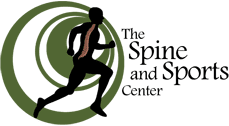
Dr. Benoy Benny at The Spine and Sports Center specializes in the emerging field of regenerative medicine — procedures that boost your own body’s ability to heal itself — and offers four effective forms that could help you overcome your joint pain.
Stem cell therapy
Perhaps one of the best-known types of regenerative medicine, stem cell therapy has been in the press a lot lately. That’s because doctors have been using it to treat joint and tissue damage with success. For instance, one study followed patients with osteoarthritis in their knees and reported continued improvement even five years after their treatments.
The reason it works so well is that it involves stem cells, which have the unique ability to morph into any type of cell they’re near. If you have deteriorated cartilage and ligaments in your joints, stem cells injected into your knee or shoulder have the ability to transform and regenerate those tissues.
We start by extracting stem cells from another place on your body, typically bone marrow from your iliac crest (hipbone). Then we inject them into your joint to initiate your body’s own healing process.
Platelet-rich plasma (PRP)
More and more people who suffer from knee osteoarthritis are turning to platelet-rich plasma to treat their joint pain. Although it’s been used for more than three decades for tendinosis, it’s gained popularity since the early part of this century for its efficacy in the treatment of arthritis.
In this procedure, Dr. Benny draws a small sample of blood from your arm — it’s similar to a routine blood draw in a lab. He places that blood into a centrifuge, which spins it at a high speed to isolate the platelets from other components in your blood, like the red and white blood cells. Once it’s ready, he injects the concentrated solution into your painful joint.
Those platelets secrete growth factors that boost cell division, prompt your tissues to regenerate, and speed up the healing process. Studies show that PRP for knee osteoarthritis often stops the progression of the disease and reduces pain.
Prolotherapy
Another type of regenerative medicine, prolotherapy, also involves an injection, but does not require a blood draw or the harvesting of stem cells.
Prolotherapy is based on the premise that your body naturally sends resources to a site that needs healing. So, in this procedure, Dr. Benny injects a safe solution of glucose (sugar water) into your joint, where it acts as an irritant and stimulates your body’s defense and healing mechanisms.
The injection generally contains no drugs or steroids, although Dr. Benny may opt to add a dose of lidocaine to help numb the area and keep you comfortable during the procedure.
The goal of prolotherapy is to reduce inflammation and pain while promoting the regeneration of damaged tissues, such as ligaments and tendons. Many patients report less pain and better mobility.
Amniotic membrane injections
The fourth type of regenerative medicine Dr. Benny offers uses the amniotic membrane tissue of the placenta from fully consented mother’s during the delivery. The powerful properties found in this tissue, which is typically discarded with the placenta after delivery, has several applications in the field of regenerative medicine.
Dr. Benny injects a solution containing the amniotic membrane into your joint, where it releases several healing components, including: growth factors, cytokines, collagen, hyaluronic acid, and fibrinogen
Amniotic membrane injections not only help with joint pain and other sports medicine and orthopedic applications, they have also been shown to help heal wounds and surgical sites.
Joint pain basics
Before Dr. Benny performs any of these regenerative procedures, he thoroughly examines you and evaluates your overall health. He starts your treatment with conservative measures first, including nonsteroidal anti-inflammatory drugs like ibuprofen, physical therapy, ice and rest, even weight loss when necessary.
If traditional methods fail to alleviate your pain, Dr. Benny discusses your regenerative medicine options to determine which might be a good match for your symptoms.
If you have chronic joint pain, give us a call or book an appointment online using the handy scheduling tool.
